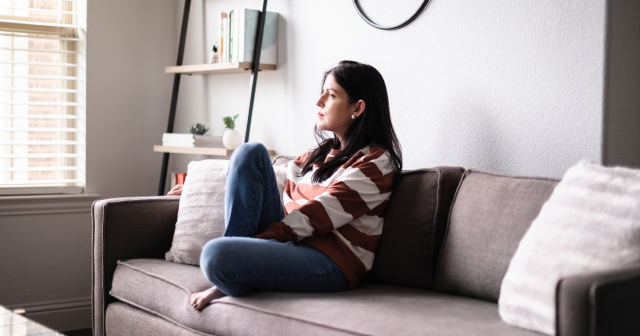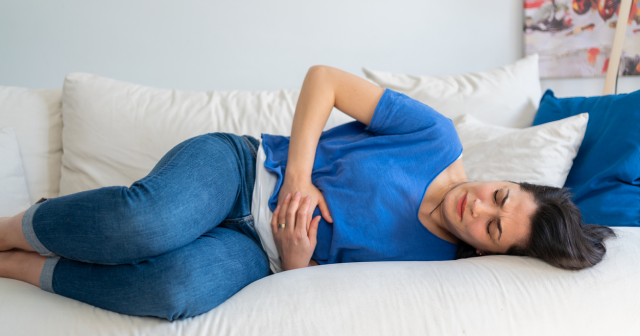About 80% of women have symptoms around the time of the menopause, for many they can be miserable. Here's how your GP can help.
Ask your doctor for help if you have menopausal symptoms and are finding them difficult to deal with.
Your doctor should be able to diagnose the menopause by discussing your symptoms and taking into account your age and whether or not you're still having periods. If you're under 45, you may also be offered a blood test to measure your hormone levels.
"Don't feel embarrassed," says Dr Rupal Shah, a doctor in south London. "Doctors see many women complaining of menopause-related symptoms. You mustn't feel like you're making a fuss."
Dr Shah stresses that if menopause symptoms are having a negative effect on your job or relationship, it's time to ask your doctor for help. "If you're sitting at your desk in the office embarrassed because you’re covered in sweat or you’re worrying about going out in the evening because you may have a hot flush, go and see your doctor."
Keep a 'hot flush' diary
Some women find it difficult to approach their doctor about the menopause. Dr Shah suggests seeing a female doctor if that makes you feel more comfortable.
She also recommends keeping a list or diary. "A list can be good as a memory aid, and a little diary of how often you’re getting hot flushes can help your doctor assess whether they're average or more frequent than average.
Read more about hot flushes.
Sexual problems at the menopause
"Hot flushes are by far the most common physical symptom of the menopause," says Dr Shah. However, it's important to tell your doctor about all the symptoms you're experiencing, including any sexual difficulties.
"Some women are embarrassed about the sexual side of things and won't talk about it," she says. But if vaginal dryness is the main issue, then prescribed oestrogen creams can be a simple, safe option.
Menopause treatments
Medical treatment for the menopause can involve hormone replacement therapy (HRT) or antidepressants.
HRT is the most effective treatment for easing common symptoms such as hot flushes, night sweats and vaginal dryness or itching.
"HRT is the main form of menopause treatment," says Dr Shah. Patients can expect their doctor to remind them of the slight risks associated with HRT .
"If a woman is within 2 years of the menopause, I would recommend a cyclical HRT, which means you still get your periods. If you haven’t had periods for 1 year, you can go on to continuous HRT, which means there's no bleeding."
The decision to prescribe HRT also depends on your age. "Under the age of 45, it’s not a bad idea to be on HRT to protect your bones," says Dr Shah. "It's also the most effective treatment for hot flushes."
Dr Shah recommends allowing 3 months to get used to HRT and advises against giving up after the first attempt, as there are different types of HRT you can try.
Antidepressants for menopause symptoms
When a woman can’t take HRT – for example, if she has had breast cancer, a stroke or blood clots – antidepressants may be recommended to treat some symptoms.
However, not all women who visit their doctor about menopause symptoms want or need drug treatment. Dr Shah says: "You want to know you’re not the only one, and it may be that, armed with enough knowledge, you decide you don’t want any medication, and that you’d rather see how things go. That is a perfectly valid choice ."





